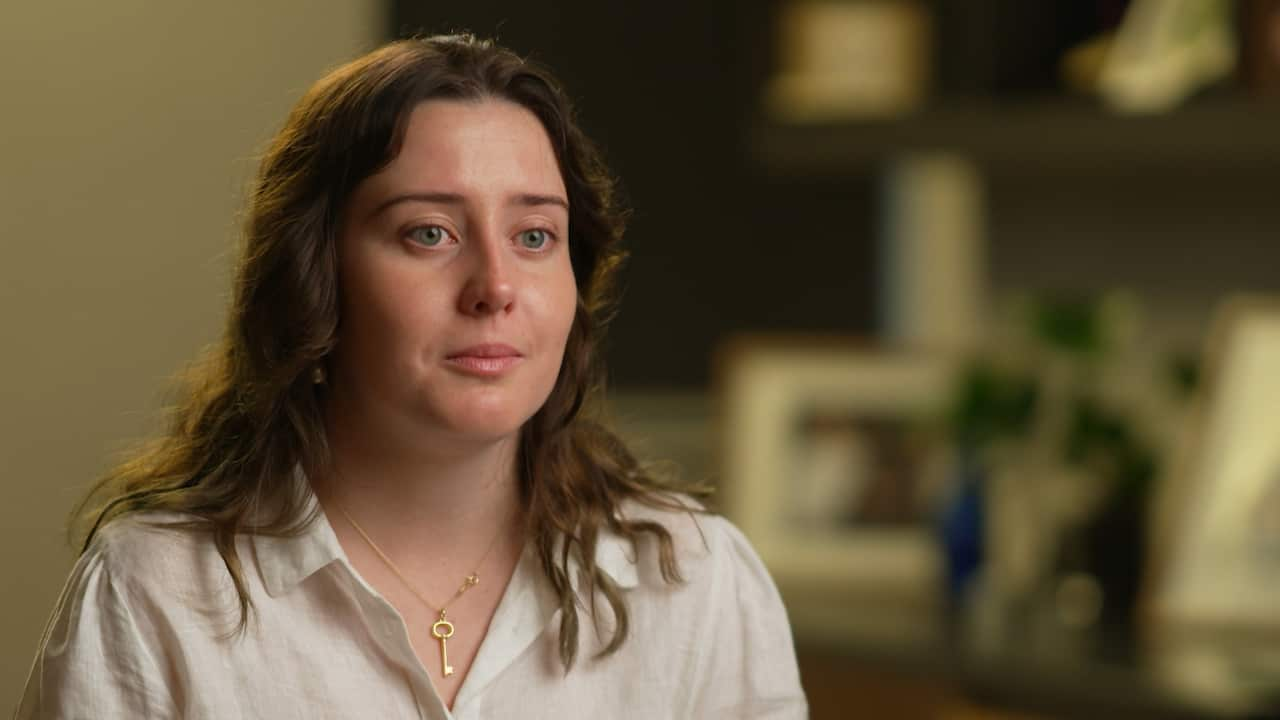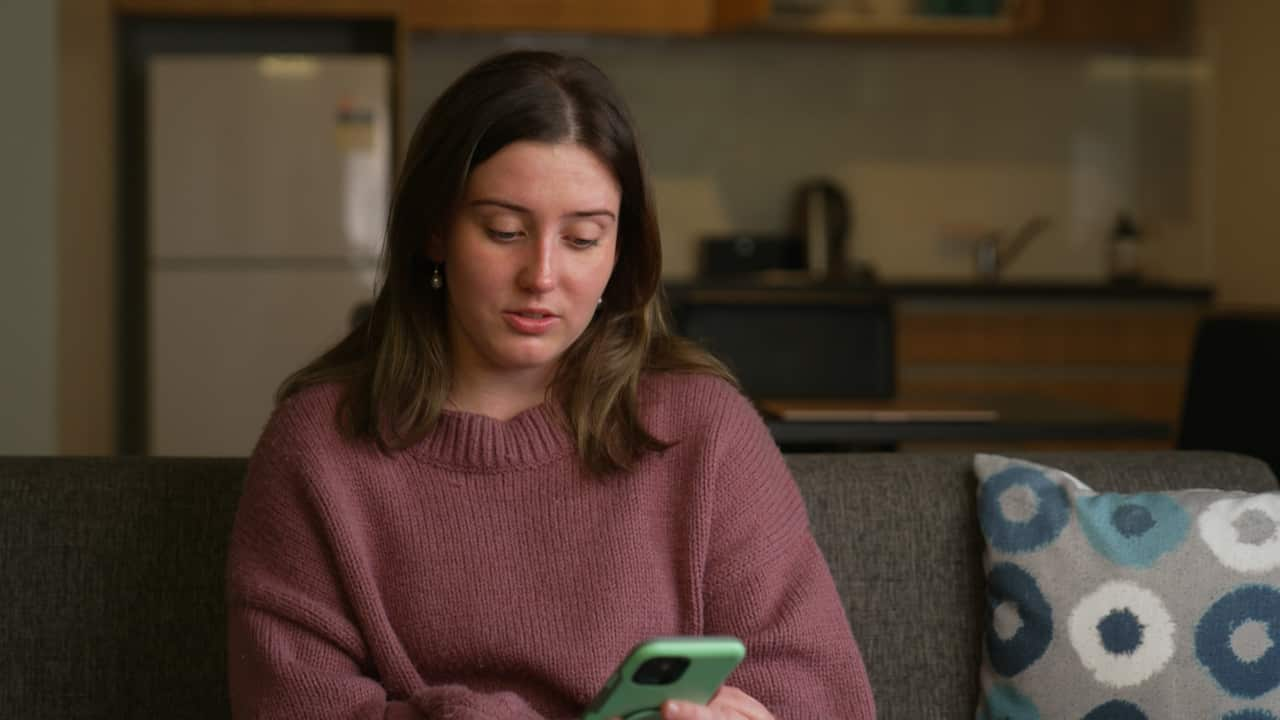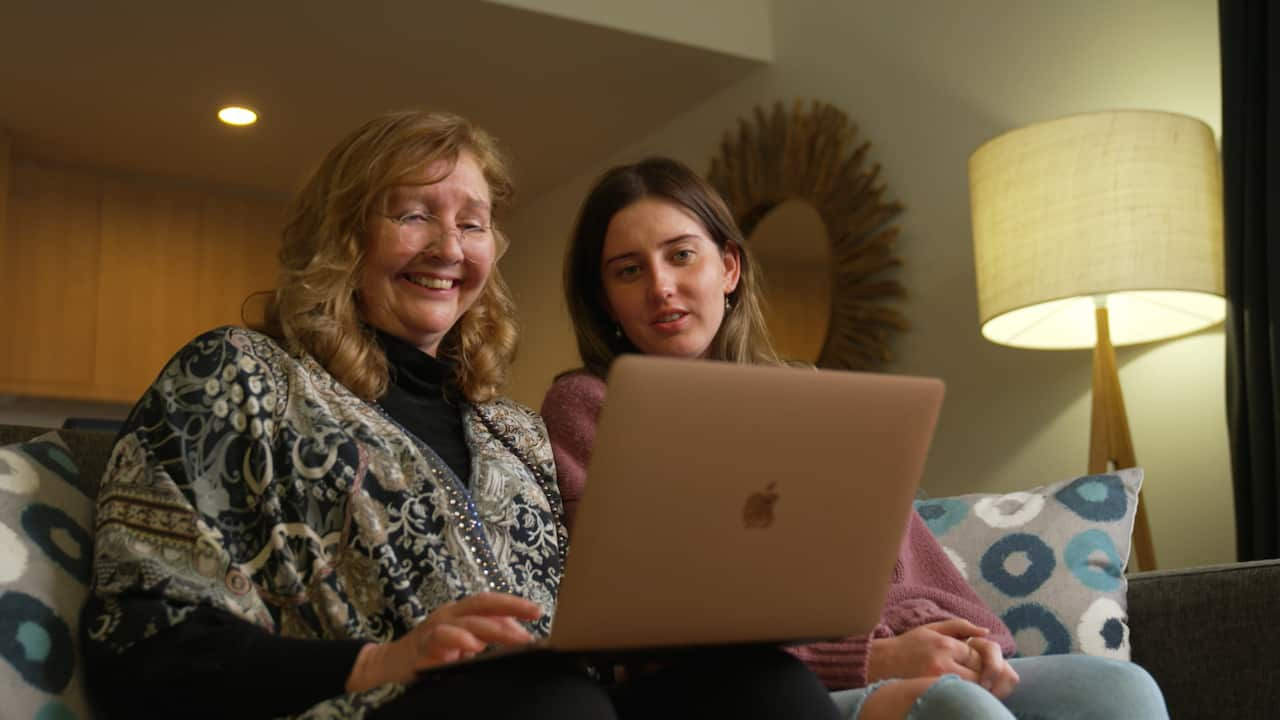In the Paralympics, as in all elite sports, some athletes cheat.
To ensure competitive fairness, para-sports use a classification system to group athletes according to their level of impairment.
A former Paralympian says para-sport is dogged by a culture in which some athletes exaggerate their disabilities to manipulate this system - and her efforts to raise the alarm have tarnished her career.
Kat Downie was 16 when she was first introduced to the world of para-sports. It was a year after she was diagnosed with cerebral palsy, marking the end of a long journey finding out why one side of her body was weaker than the other.
The diagnosis was devastating for Kat.
“It did explain so many of the issues that I was having, but it was still such a shock to me,” she said.
“Most teenagers at 15 aren't learning to deal with their new identity as a disabled person.”

Kat Downie says her career was affected by her attempts to speak-out about cheating. Source: SBS Dateline
Kat had loved swimming since she was young, first learning as a baby in Scotland, where she was born, then on the beaches of Perth where she was a young surf lifesaver.
As an able-bodied athlete, she wasn’t competitive at an elite level.
Receiving her cerebral palsy diagnosis helped explain why.
But her disability opened the door to a whole new world of elite para-sport.
“Being introduced to the Paralympic team, I met athletes who were doing phenomenal, amazing things,” Kat said, explaining how the para-sport movement helped her embrace her diagnosis.
London 2012
A year later Kat was going to the London 2012 Paralympic Games.
It was, as Kat describes, an incredible experience, as she came away with two gold medals in team relay events.
“It kind of came to me and I was like, yes, this is what I want to do. This is what I want to be involved in.”
“I could just think about young girls, young boys, similar to myself who have just gone through a diagnosis, seeing that there is this whole other world of opportunity and potential that they can't let their diagnosis shut them out from.”

Kat came away from London with two gold medals in team relay events. Source: SBS Dateline
Mel Downie, Kat’s mother, witnessed the games unfold with amazement.
But as she watched the swimming events at London Aquatics Centre, Mel says something felt awry.
“So you would potentially have athletes with lots of different disabilities, all competing within the same class,” she recalls.
“So a good example is the S6 class, which can be predominantly short-statured athletes, but you can also have a lot of athletes with more moderate cerebral palsy that would fit in there. Amputees can also fit in that class.
“And then you actually started to think something just isn't quite right there. [There were] other situations where very young school kids were beating very experienced athletes with different disabilities.”
Mel's unease as she watched the 2012 games would signal the start of a tumultuous period for her and her daughter, as they started raising difficult questions about the Paralympics classification system.
This system was set up to make the sport fair, but continues to come under fire over claims it’s easily manipulated to gain advantage.
Classification
Classification is used to group athletes according to their level of impairment. There are 10 categories – eight for physical disability, one for visual impairment and one for intellectual disability.
In swimming for instance, the classification range in freestyle is set from S1 for the most physically impaired, to S10 for the least impaired. The S11 to S14 categories cover visual impairment and intellectual disability.
The system is different for each sport, but the aim is always the same. To make competition as fair as possible.
As part of the classification process, athletes undergo a series of assessments conducted by volunteers. Classifiers typically have a physio, sport or medical background.
An athlete is meant to enter the classification process “competition ready” - able to perform the tests at 100 per cent capacity to accurately assess their disability, ensuring they compete against athletes with a comparable level of impairment.
Gaming the system
The Paralympics has long struggled with ensuring this process is free from manipulation. The most infamous classification cheating scandal transpired at the Sydney 2000 Paralympics.
Spain’s intellectually disabled basketball team claimed the gold medal. But ten of the team’s 12 members were later found to have completely faked their intellectual disability.
The country’s federation for intellectually disabled (ID) athletes cheated in the hope victory might translate into more funding.
It turned out one of the Spanish basketballers was an undercover journalist named Carlos Ribagorda, who lifted the lid on the cheating and blew the scandal wide open.
Ribagorda said the only classification assessment he had been asked to complete when joining the ID team were six push ups and a blood pressure test.
The fraud resulted in the suspension of intellectually disabled sports in the Paralympics until the London Games 12 years later. Intellectually disabled basketball remains blacklisted from the games.
The scandal was a global embarrassment for the Paralympics and sparked years of soul searching within the movement. Efforts were made to repair the system as a result, but some athletes claim the underlying concerns were not holistically addressed.
The growth of the Paralympic movement
The Paralympics started out as a small sporting competition for WWII veterans over 70 years ago in England and has since grown into a global brand.
In the US, Paralympians now receive the same medal bonuses as their Olympic counterparts. More than AUD$50,000 for gold, AUD$30,000 for silver and AUD$20,000 for bronze.
Para-sports superstars like 13-time gold medallist Jessica Long can attract lucrative sponsorship deals and rise to become national treasures. In 2020, Long featured in a big budget TV commercial for Toyota, which played during the Superbowl - amongst the most sought-after advertising slots in world sport.
The Russian-born US athlete has also used her profile to speak out against classification cheating. In a Sports Illustrated article she said it was ruining the sport and had grown to become an issue no-one seems able to address.
What is intentional misrepresentation?
Allegations of how athletes manipulate classification in para-sport are varied and far-reaching.
Labelled “intentional misrepresentation,” the goal is to be placed in a lower classification to be more competitive. For example, an athlete placed in an S8 category may not win any medals but in an S7 category may be a gold medallist.

Kat says one of her teammates admitted in text messages in 2014 that they had taken a cold shower before classification. Source: SBS Dateline
As Kat Downie continued her swimming career post-London 2012 Paralympics, she says she began to witness intentional misrepresentation. She alleges seeing athletes do intense physical training and heard of others taking cold showers before classification assessment.
“Two hours of physically intense training would make you weaker, would make you less coordinated. You would certainly appear far more disabled than you would if you hadn't have trained like that before.”
Kat says that for some athletes, taking cold showers means in her view that their conditions would be “intensified” and “worsened”.
In addition, Kat alleges she saw athletes use impairment assistance when arriving for classification, such as wheelchairs and canes, when they otherwise would not be needed.
“That means that the classifiers have to tick a little box that says that you require assistance,” she said.
Kat says one of her teammates admitted in text messages in 2014 that they had taken a cold shower before classification.
In these text messages, seen by SBS Dateline, the other athlete said they had taken a cold shower before classification but were “too naive to think it was a bad thing”.
The athlete wrote to Kat: “Unfortunately that’s the culture of the sport. Look at cycling. People say you can’t win the tour de France without drugs. It’s the same thing.”
The athlete who sent the messages is still involved in Australian swimming.
One former athlete, who wished to remain anonymous, told SBS Dateline they witnessed athletes repeatedly squeezing stress-balls to increase spasticity before classification.
They also claimed to have witnessed the use of “unnecessary” impairment assistance and recalled a teammate who admitted to rolling in snow before a classification overseas.
Another current athlete told SBS Dateline they believe there is at least one Australian athlete competing at the Tokyo Paralympics who has exaggerated their disabilities. They also said some athletes participated in test-sets before classification and heard of athletes taking cold showers.
Paralympics Australia told SBS Dateline in a statement that they are aware of allegations of intentional misrepresentation practices being undertaken by athletes prior to classification, however no claims provided to them have been supported by substantive evidence.
“Australian athletes are instructed, in no uncertain terms, to not alter their capacity before any classification evaluation which may impact or manipulate their classification, as this may well be categorised as Intentional Misrepresentation.
“To be perfectly clear, Paralympics Australia has never condoned cheating; has no knowledge of misconduct related to classification; nor is involved in such misconduct. Any claims to the contrary are refuted in the strongest possible terms.”
“There are thousands of classified athletes in Australia across more than 20 sports. We have received only a miniscule number of allegations in comparison, predominantly from an even smaller number of sources who repeatedly make claims without proper evidence or a reasonable understanding of the classification process.”
Speaking out
Kat’s mum, Mel, reached out to other parents of Paralympians’ - it’s not uncommon for athletes’ parents to be closely involved with their child’s para-sports career and training - and realised she wasn’t alone in her concerns about classification. She began collecting what she said was evidence of athletes she believed had exaggerated their disabilities.
She wrote letters and sent what she had gathered to peak bodies including Swimming Australia, Paralympics Australia, and the International Paralympic Committee. Mel wrote to Sports Integrity Australia, which was allocated $35 million in last year’s federal budget to safeguard sporting integrity. She also registered concerns with several sports ministers and her local federal MP.
“I’ve tried every available avenue within Australia and I have even taken this outside Australia,” she said.
“Absolutely no-one seems to address it.”

While Mel says her complaints went unaddressed, Kat claims she was beginning to lose positions on teams. Source: SBS Dateline
Paralympics Australia refutes this allegation stating that claims that they are aware of “have been investigated to varying degrees by a wide range of organisations over several years, including the IPC, PA, other National and International sporting bodies, Government departments, independent third parties and the media”.
A spokesperson for Sport Integrity Australia told SBS Dateline: “Sport Integrity Australia is currently working with organisations such as Paralympics Australia to establish what role it can play in matters such as para-classification.”
In an email from Swimming Australia that was seen by Dateline, Kat's mother Mel was warned that continuing to engage in discussions regarding other athlete’s classification may lead to further action.
“This is highly inappropriate and again in direct conflict with clear advice we have provided to you both verbally and in the past,” the email said.
“Should you continue making such communications you run the risk of breaching IPC Classification code and IPC swimming rules, pol[icies] and procedures which may lead to APC or IPC taking direct action against Katherine thus jeopardising Katherine’s future in Paralympic Swimming.”
In Australia, Swimming Australia requires para-athletes to sign a code- of -conduct that requires them, and their parents, not to talk about other athletes’ classification.
“They started taking me aside at swim camps and saying, ‘you need to control your mother. You need to placate your mother. You need to tell her to stop doing what she's doing’. I was 16, 17, 18, and I had no control over what my mother was doing,” Kat Downie said.
“It was sort of like a snowball effect that gradually turned into something very nasty and very, very awful.”
In a statement provided to SBS Dateline, Swimming Australia Chief Executive Alex Baumann said the organisation supports and abides by the current classification process for Paralympic athletes, which is devised and conducted by the International Paralympic Committee.
“The thorough and extensive process is undertaken by an independent classification panel, and involves assessment by medical professionals and international classification experts,” he said.
“Any suggestion that Swimming Australia is aware of misconduct relating to intentional misrepresentation through the classification process is refuted in the strongest possible terms.”
Attempts to fix the system
Outside Australia, other countries have taken steps to address complaints. In 2017, a UK government inquiry heard allegations of cheating were still common in Paralympic sport and athletes faced repercussions for speaking out.
Former Paralympian Tanni Grey-Thompson told the inquiry: “We need to absolutely ask the questions: whether it is fair; whether it is transparent; whether athletes have the ability to make an appeal; and, whether they can do that in an open and tolerant forum.”
While facing criticism, the International Paralympic Committee (IPC) has straddled the line between standing by its classification system and acknowledging work needs to be done to stamp out intentional misrepresentation.
The IPC made a commitment in its Strategic Plan 2019-22 to “address the long-term challenges of classification.” In March this year, it announced it would engage in a three-year review of the Athlete Classification Code.
The IPC has strongly refuted accusations that the classification system is broken or not fit for purpose.
They told SBS Dateline in a statement that the IPC and International Federations are well aware of such rumours [of alleged intentional misrepresentation practices of cold showers and over-training] and treats all allegations of misconduct in any of its sports seriously.
“The IPC and all International Federations treat intentional misrepresentation as a very serious offence.
“The 2015 IPC Athlete Classification Code is designed to ensure consistency of classification across the Paralympic Movement, which includes a huge variety of different sports, each requiring different functional abilities.
“As with the development of all sport assessment systems, research, evidence, technology and the views of the Para sport movement continue to improve our assessment processes over time.”
A new classification process implemented by the World Para Swimming Association in 2018 required all athletes to undergo a new classification test. Changes to the classification, some athletes claim, have made a bigger mess, with world champions Amy Marren and Matt Wylie retiring over the new system.
Meanwhile, other athletes say a lack of confidence in the system has created a culture of suspicion that impacts innocent athletes.
US triathlete Allysa Seely told SBS Dateline her disability was questioned the day she won gold at Rio 2016.
“I was told that it was being discussed, that I didn't deserve to be on the medal stand because I didn't even deserve to be competing because I was faking my disability.”
The end of a swimming career
In Australia, while Mel says her complaints went unaddressed, Kat claims she was beginning to lose positions on teams.
Kat was not included in the 2016 Rio Paralympic team. She says she was told this was to make room for fresh athletes who had never been to a Games. But Kat alleges it was punishment for her and her mother’s outspoken claims about classification cheating. Swimming Australia refutes all such claims.
Months before trials for Tokyo 2020, Kat says she was told by Swimming Australia management her scholarship with the Australian Institute of Sport would be terminated. Kat says management verbally told her she was no longer a medal contender. She says she never received an official reason.
Soon after, the 25-year-old says she made the decision to retire.
“I had lost my passion for the sport. I had lost the love for something that was so great and so integral to me growing up and becoming who I was.
“It was just heart breaking for me and I didn't have many more hits left in me.
“It got to that point where I couldn't sacrifice any more of my mental health, my physical health for the sport, because it wasn't the sport that I fell in love with it wasn't the sport that I wanted it to be anymore.”
Former athletes like Kat Downie say that while attempts to fix the system are good, it has not gone far enough to ensure integrity in the sport and protect athletes who speak-out.
"I feel that it's really important for us to get this classification system, right, because of what the Paralympic movement represents,” she said.
“I believe that it can be fixed. I believe that it is important, that it should be fixed. I believe that it should be a priority.”










